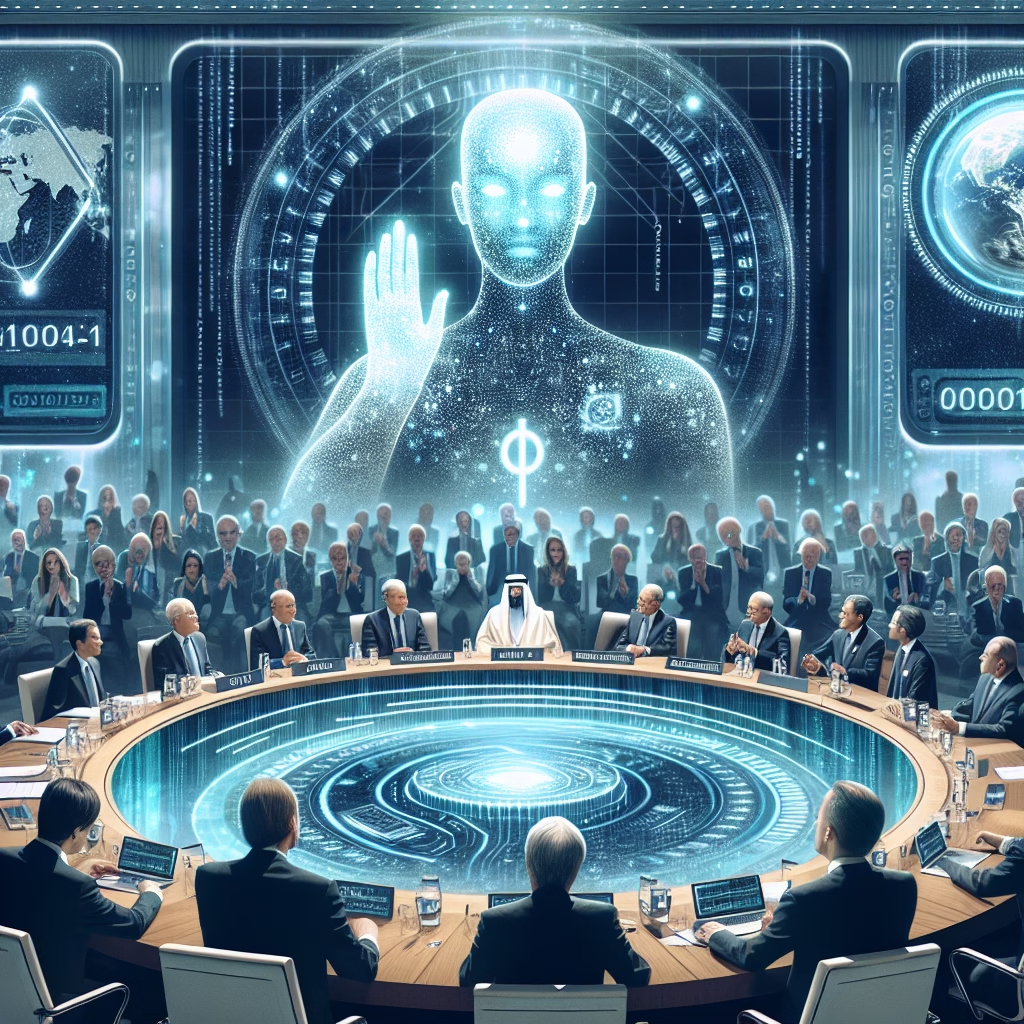Pope Warns Davos Summit That AI Could Worsen Crisis of Truth
The age of artificial intelligence is both thrilling and troubling—a sentiment shared by Pope Francis in his recent address to the world’s elite gathered at the Davos Summit. The Pope’s warning struck a chord with many, as he emphasized how the irresponsible use of AI could exacerbate humanity’s existing “crisis of truth.” Below, we explore what this cautionary message means in the broader context of the digital age, why it matters, and what steps we can take moving forward.
The Rise of AI at the Davos Summit
In recent years, the World Economic Forum’s annual summit in Davos has become a melting pot for discussions on the most pressing global challenges. From climate change to economic inequality, world leaders, business tycoons, and innovators gather to dissect issues and propose collective solutions. One topic that dominated the event in 2025 was artificial intelligence.
AI’s growth in capabilities has been transformative for industries like healthcare, logistics, and finance. But amid all its promises, Pope Francis highlighted a glaring concern: what happens when these advanced technologies are wielded without ethics and transparency? He cautioned against AI’s potential to amplify misinformation and deepen divisions in societies already battling trust crises.
The Crisis of Truth in the Digital Age
The “crisis of truth” refers to an alarming landscape where misinformation runs rampant, eroding trust in traditional institutions, media outlets, and even scientific facts. Fake news has become a pervasive issue, and as AI tools like deepfakes and advanced text generators evolve, the lines between reality and fabrication blur further.
- Manipulated content: AI-powered image and video generators can create hyper-realistic content that is nearly impossible to distinguish from the real thing.
- Misinformation campaigns: Automated bots and algorithms can flood social media with propaganda, polarizing public opinion and undermining democracy.
- Loss of trust: Misinformation sows doubt in institutions, scholars, and even neighbors, creating an ever-widening divide in societies worldwide.
Pope Francis expressed that unchecked AI innovation could worsen these challenges if left in the hands of actors pursuing power or profit without responsibility.
Pope Francis’ Call for AI Regulation and Ethical Leadership
The Pope’s impassioned speech was not an indictment of all AI but rather a plea for creating an ethical framework to guide its development and use. He encouraged governments, tech companies, and decision-makers to prioritize humanity over profit and power. Key points from his call to action include:
1. Fostering Transparency
The Pope emphasized the need for transparency in AI systems. AI algorithms must not become enigmatic black boxes that control vital societal processes without accountability.
2. Building an Ethical Foundation
Pope Francis argued for embedding ethics into the DNA of AI technology. For example:
- AI should prioritize truth, fairness, and inclusivity.
- It must be trained with unbiased datasets to prevent discrimination.
3. Holding Tech Giants Accountable
The speech highlighted the responsibility of corporations in ensuring their AI tools don’t become instruments of harm. As these companies grow in wealth and influence, they must strive for a balance between innovation and the societal good.
4. Protecting the Vulnerable
Pope Francis also raised concerns about how AI could widen existing inequalities. He called for systems that benefit marginalized communities rather than deepen the disparities they already face.
How AI Can Be Both a Blessing and a Curse
AI’s dual potential as a force for good and a source of harm underscores why the technology industry must tread carefully. When used responsibly, AI can contribute to:
- Healthcare innovation: AI-powered diagnostics and personalized treatments can save lives.
- Education: Tools like language-learning AI or virtual tutors can improve global literacy rates.
- Sustainability: AI can optimize energy consumption and help combat climate change.
But its misuse can cause massive disruptions:
- Mass surveillance: Governments and corporations may use AI to violate privacy rights.
- Erosion of democracy: AI-driven misinformation can influence elections and manipulate populations.
- Job displacement: Automation could render millions of jobs obsolete without a plan for transition.
What the World Can Learn from the Pope’s Warning
Pope Francis’ speech wasn’t just a cautionary tale for the elite—it was a wake-up call for all of humanity. It’s a reminder that as AI advances, ethical considerations must stay front and center. Here’s how governments, companies, and individuals can turn his words into action:
1. Create Policies on AI Governance
Governments must enact laws to regulate AI applications to ensure responsible use and penalize misuse. International collaboration will be essential to create a global framework that aligns with universal human values.
2. Educate the Public
AI literacy should be prioritized. Citizens must be equipped with the knowledge to spot misinformation and understand how AI systems impact their daily lives.
3. Encourage Ethical Tech Development
Tech companies need incentive structures that reward ethical innovation. Transparency reports, audits, and external oversight can help rebuild public trust.
Conclusion: A Shared Responsibility
As AI’s influence grows, its trajectory will depend largely on the values of those who wield its power. Pope Francis’ warning to the Davos Summit serves as a stark reminder that technology, while neutral in itself, reflects the intentions of its creators. To avoid worsening the “crisis of truth,” humanity must approach AI with caution, care, and a deep commitment to ethical principles.
The road ahead is challenging, but it’s not without hope. AI has the potential to become a tool for great good—as long as the global community takes swift and thoughtful action to mitigate its risks. The Pope’s message resonates as a crucial step in ensuring that this powerful technology doesn’t exacerbate the crises we face but instead becomes a vehicle for truth, justice, and equity.
< lang="en">







Leave a Reply